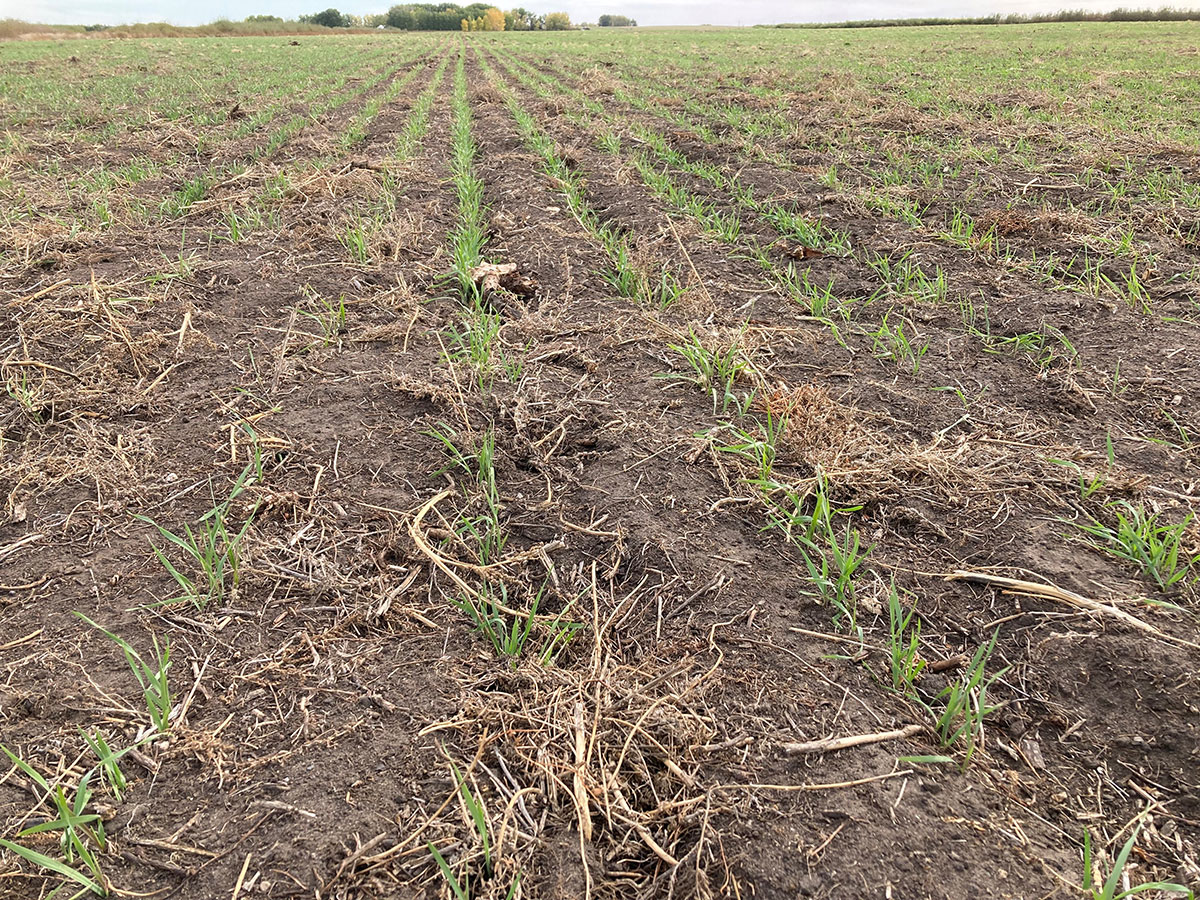Biosolids demonstration projects
As part of the City's biosolids management program, we are committed to pursuing research into the best ways to manage biosolids and increase program resiliency.
In 2013, in consultation with Alberta Environment and Protected Areas (AEPA), The City of Calgary initiated two operational-scale demonstration projects – the Willow Tree farm and the Agricultural Marginal Land Improvement project.
Both use dewatered biosolids to improve soil quality on land that’s considered “marginal” for agricultural use. The application of biosolids also provides a nutrient source for the willow tree farm.

Willow Tree Farm
This landmark project evaluates whether the application of dewatered biosolids can be used to establish a willow biomass plantation in Southern Alberta and was 2023 Land Award recipient - Emerald Awards
About the Willow Tree farm
The willow farm is the largest willow plantation in North America, with approximately five willow trees planted for every Calgarian.
Willow trees create a large amount of woody growth quickly and are typically harvested every three years. A large portion of the produced wood is used as feedstock for Biosolids composting at Calgary’s Composting Facility.
Since 2017, the willow plantation has also supplied willow stems to the Calgary Zoo, providing all browse and forage material for giraffes, moose, gorillas, and other species.
These willows will help create a carbon storage sink that leads to fewer greenhouse gas emissions and results in improved use productivity of marginal land.
Assessment and monitoring data collected as part of this project is being used by the Government of Alberta to shape future regulatory updates.
This is an exciting opportunity to both expand the use of biosolids as a valuable resource and introduce large-scale willow biomass plantations in southern Alberta.
Click below to view our image gallery.
About the Marginal Land Improvement project
The goal of this leading-edge project is to assess the potential of biosolids to improve Alberta's base of land suitable for agricultural production.
The coarse textured (marginal) soils from this project area contain limited organic matter, have relatively low fertility, and produce historically low crop yields.
The addition of biosolids has not only improved crop productivity, but also the quality of key soil characteristics such as organic matter content and nutrient and water holding capacity.
Click below to view our image gallery.
On the left is soil that has received biosolids and was planted with willows. On the right is the original marginal soil.
Project monitoring
The City and Alberta Environment and Protected Areas are monitoring these projects to develop best management practices for these new uses of biosolids.
We meet all health, safety and environmental standards when working with biosolids for these projects, in consultation with Alberta Environment and Protected Areas including:
- Continuous monitoring of biosolids quality
- Approval of the application sites
- Distances from dwellings, property boundaries, water features, wells, roadways, etc.
- Making sure biosolids are added at the appropriate rate
- Monitoring project areas for soil fertility, crop yield and quality
Information packages for those living within a one-mile radius of the projects, annual project fact sheets. Annual reports are available upon request.

Project awards
-
Excellence in Biosolids – NW Biosolids
2018 Runner-up


